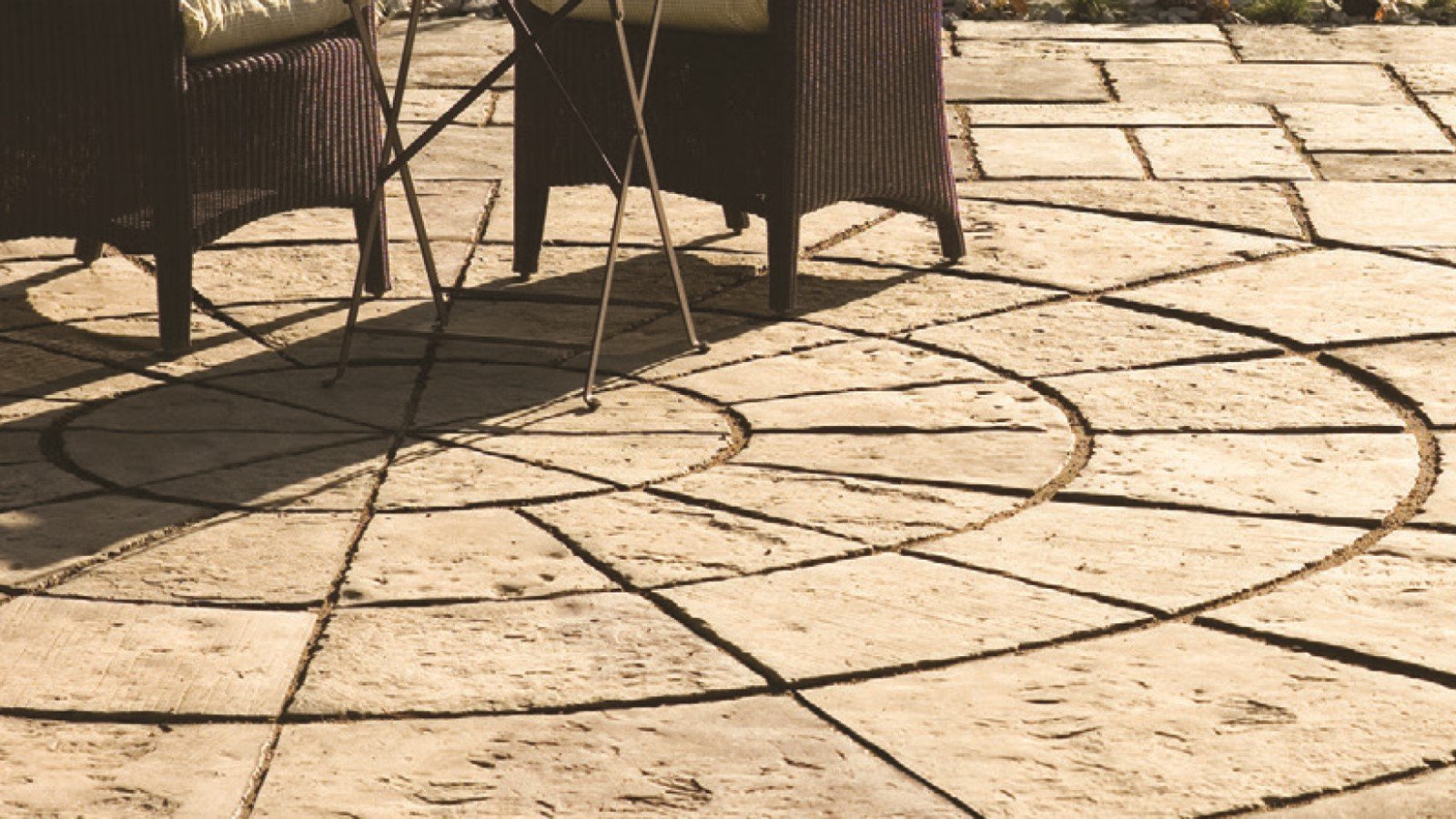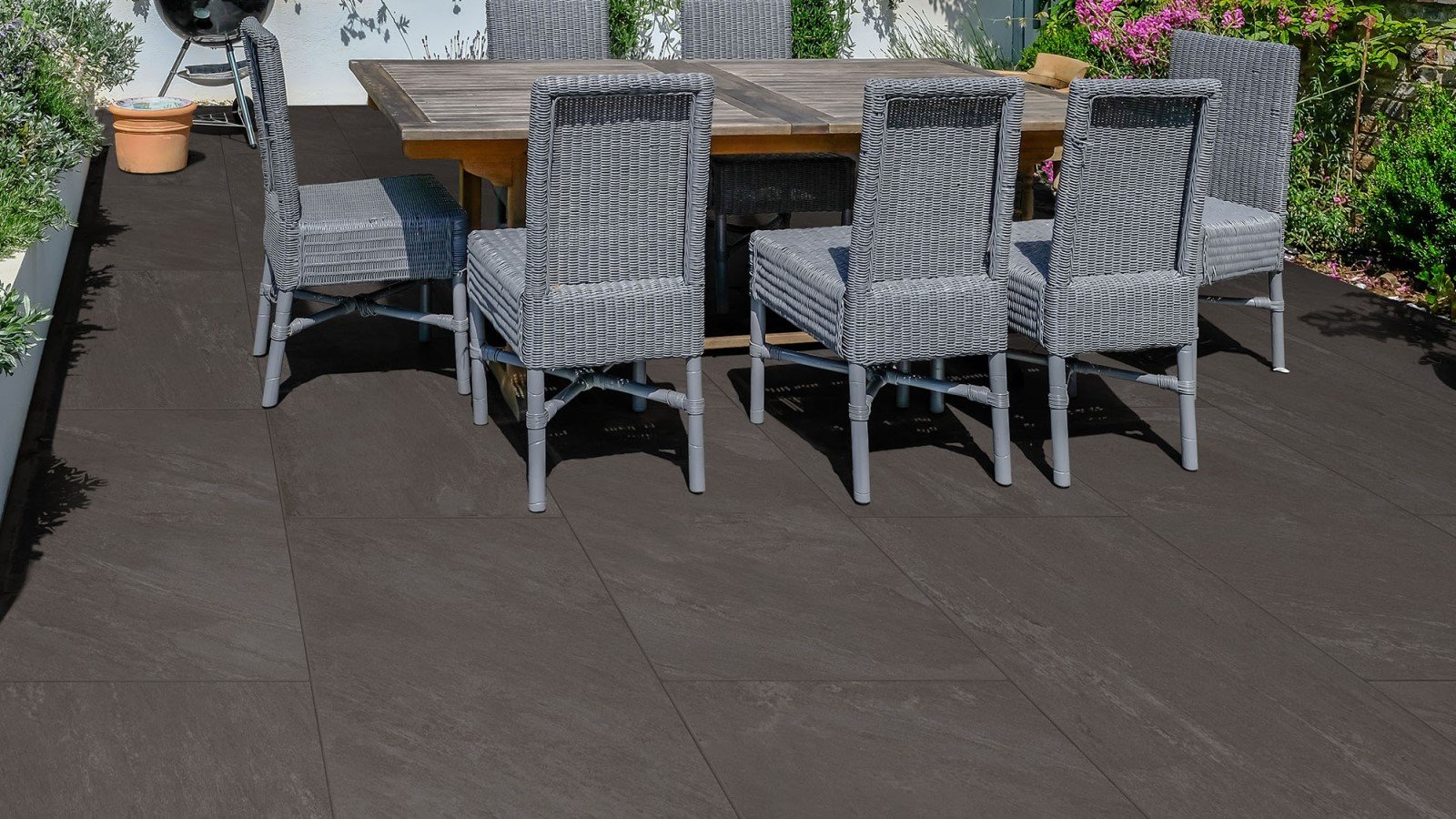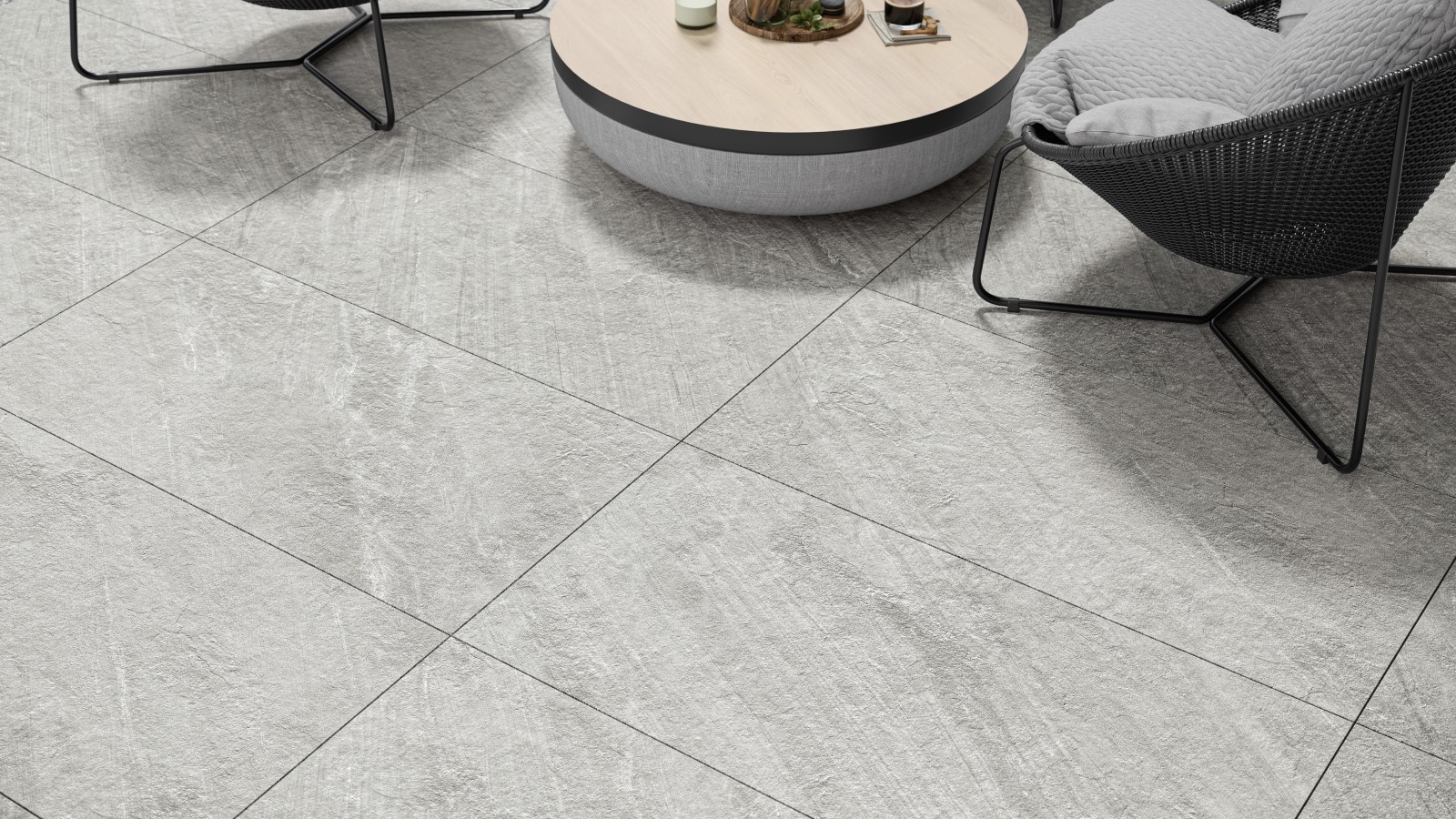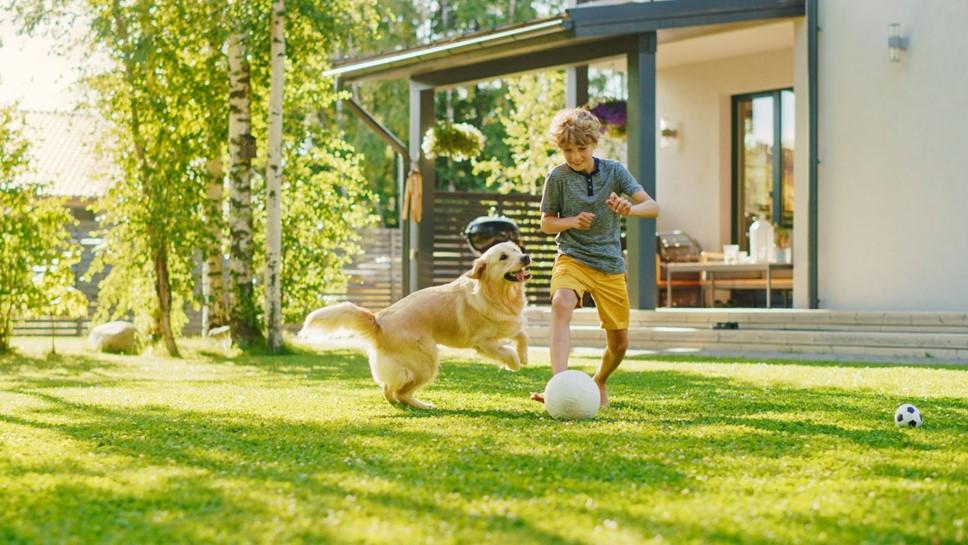Whether you’re looking to protect your garden, your pets, or even make sure visitors to your garden are safe, it’s important to consider dog proofing your garden, or cat proofing your garden, even if you don’t have any feline friends living with you.
While your furry friend might love nothing more than charging around your garden, their daily discoveries can ruin your perfectly manicured aesthetic. What’s more, your garden may hide pet hazards that you are unaware of, such as concealed sharp objects or toxic plants lurking in flower beds.
So, rather than confine your four-legged pal indoors, we have collated a few tips and tricks to help keep both your pet and garden safe. For example, keeping your patio clean is a good place to start, but there’s more to making a garden safe for pets.
Continue reading, below, to find out how to pet-proof your garden.
How to dog-proof your garden
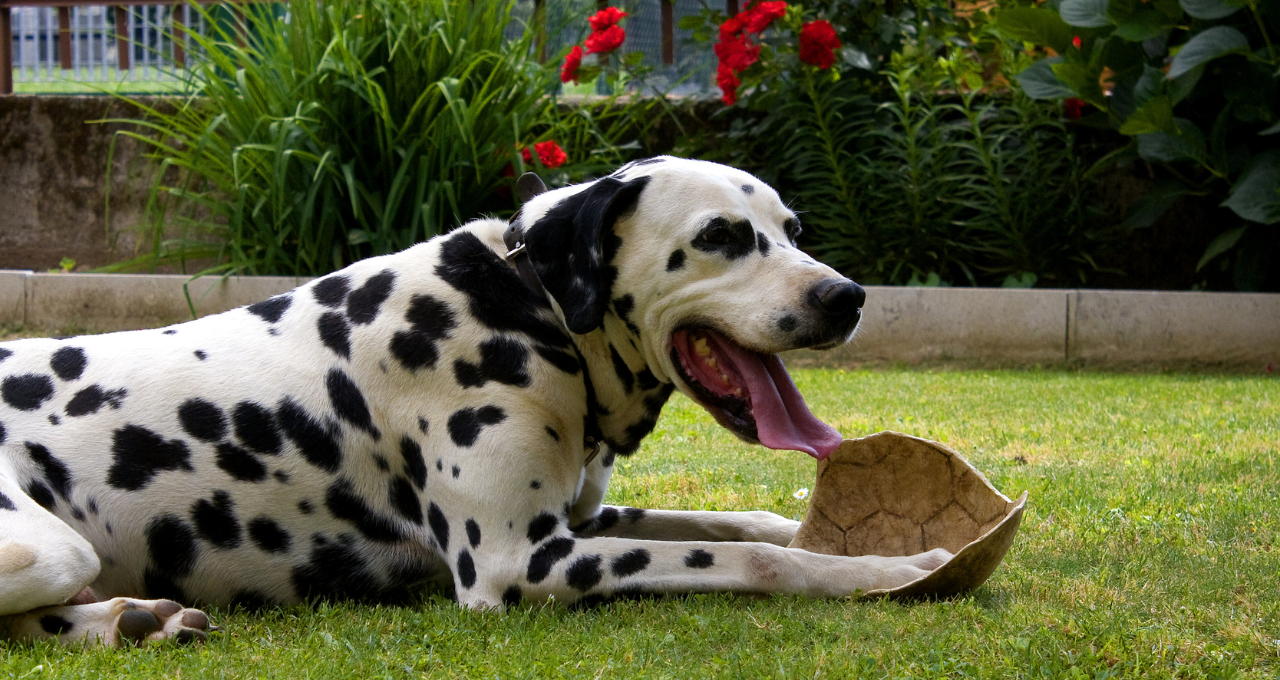
When creating a dog-friendly garden, it’s important to ensure your outdoor space is both a safe space for your dog and remains in tip-top condition. However, it’s certainly a challenge to keep your garden completely pristine and hazard-free when you have a dog due to its natural instincts to dig, roll, and play rough.
Naturally, this makes it harder to keep in a safe state for your dog. Below are a few tips to help keep your garden in better condition and protect it from your dog, as well as vice versa.
1. Protect borders and beds with lawn edging
Dogs tend to trample and urinate on flowers and plants, tracking soil all over the garden. However, by installing lawn edging around your plant beds, you can deter your dog from entering your flower beds and making a mess. For help creating nice, tidy lines with garden edging for help with lawn edging ideas, read our guide on how to install garden edging.
2. Partition the garden
Walls and fences are also incredibly useful if you prefer to keep your pet away from vegetable patches, sheds, or areas earmarked for natural instalments like ponds. Do bear in mind that walling should be at least 6ft to prevent the dog from leaping over the top. Simply install a fence door and you’ve got easy, safe access to these spaces without worrying about the dog.
3. Install raised beds
Raised beds and planters are ideal for growing vegetables and flowers and will make it much harder for your dog to spread compost across your patio. Raised planters are especially ideal since the gaps underneath the planters encourage thorough drainage and air circulation. This decreases the opportunity for moisture-borne diseases that could harm your precious pooch.
4. Avoid toxic plants and flowers
If you’re planning on introducing some new flowers and plants to your garden, then you need to know which plants can pose a threat to your pet. Common plants and flowers such as these include onions, daisies, lilies of the valley, garlic, foxglove, crocus, and chives.
Play it safe with dog-safe plants, such as roses, marigolds, hibiscus, and asturs, as well as herbs like sage and thyme. To ensure your garden is dog friendly, you should always check which plants and flowers are poisonous to your dog.
How to cat-proof your garden

Cats, by nature, are inquisitive creatures. Due to their proportionally large eyes, they have difficulty focusing on objects less than a foot in front of them. To make up for this, they frequently touch, taste, and sniff items that they encounter.
It’s this practice that helps them learn what is and isn’t dangerous in the wild. However, in more domestic surroundings, it can put them in proximity to hazards they’d normally never encounter.
Even if you don’t have a cat of your own, your garden probably sits within the territory of another cat in your neighbourhood. This makes ensuring that your garden is a safe space for cats worthwhile, whether it’s for your feline companions, your neighbour’s cats, or both.
1. Secure garages and sheds
A quick once-over of your outdoor space will soon identify any potential pitfalls. Ensure that all garages and sheds are secure, especially if they contain chemicals or garden tools and are infrequently used. Cats will inevitably want to explore these areas and could get locked inside or interact with potential hazards within, so keep everything locked up.
2. Avoid the use of dangerous chemicals
Rats, mice, and other rodents can be a serious nuisance to some homeowners. In some cases, dangerous chemicals may be used to deal with these pests. However, it should come as no surprise that these can also be harmful, or even fatal, to cats. Whether they ingest the chemicals directly or consume the rodent itself while hunting, the result is the same. Play it safe and avoid using them in your garden altogether.
3. Avoid planting plants and flowers that are toxic to cats
Just like with dogs, there are many plants and flowers that are dangerous to cats. There are many plants and flowers that are safe for cats, such as roses, sunflowers, gerbera daisies, and pansies. However, there are plenty of others to avoid to keep your feline friend healthy, such as lilies. Remember to always check which plants and flowers are dangerous for cats before starting a new flowerbed.
4. Ensure easy access (or lack of access)
Cats enjoy the great outdoors, so frequent access to the garden is something you should certainly consider. However, you may wish to curb some of their more troublesome antics that take place in and around your garden.
Fighting, hunting, and roaming around their territory at night can often place them in danger, so attaching a lockable cat flap to your backdoor can be the ideal solution. Alternatively, you can ‘cat-proof’ your garden by attaching the likes of rollers along your fences and high spaces or even netting over your garden entirely.
Improve your garden with Simply Paving
At Simply Paving, we understand that you want your outdoor space to be safe for your pets, while also looking fantastic. Whether you’re looking for lawn edging to contribute to your lawn edging ideas or you’ve got your eye on creating planters safe from rowdy dogs, be sure to browse our entire paving collection.
Browse our selection to see how to make your garden more pet-friendly, or simply to make it perfect for you and your family.
If you’re looking for help, advice, or guidance with anything garden, patio, or outdoor space related, you can reach out to our friendly team of paving experts who’ll be happy to help. Call 0800 032 6306 or start a live chat with us online.
















